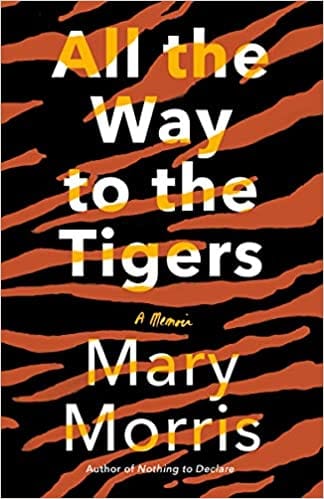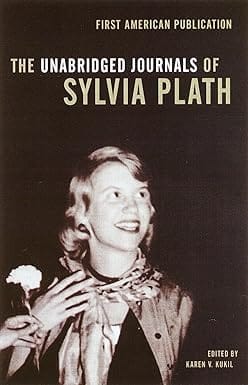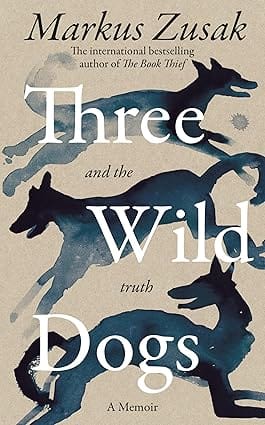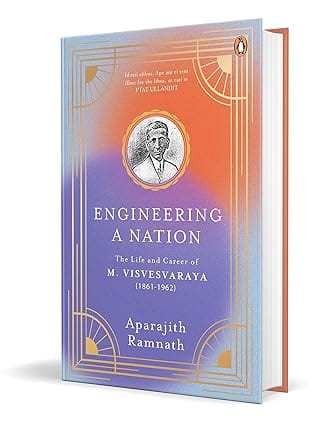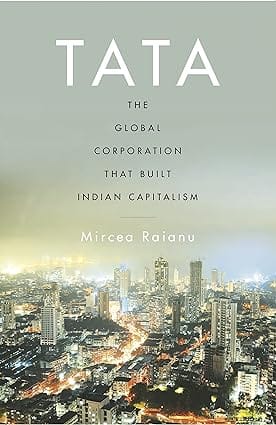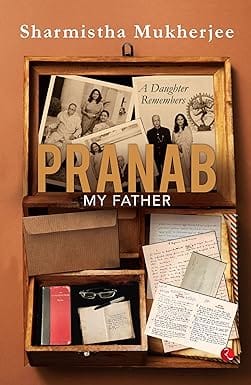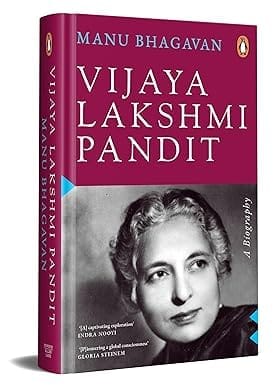- Non-ficton
- Non-ficton
- Contemporary Fiction
- Contemporary Fiction
- Children
- Children
- Comics & Graphic Novels
- Comics & Graphic Novels
- Non-Fiction
- Non-Fiction
- Fiction
- Fiction
One of NPR's Best Books of the Year
From the author of Nothing to Declare, a moving travel narrative examining healing, redemption, and what it means to be a solo woman on the road.
In February 2008, a casual afternoon of ice skating derailed the trip of a lifetime. Mary Morris was on the verge of a well-earned sabbatical, but instead she endured three months in a wheelchair, two surgeries, and extensive rehabilitation. One morning, when she was supposed to be in Morocco, Morris was lying on the sofa reading Death in Venice, casting her eyes over these words again and again: “He would go on a journey. Not far. Not all the way to the tigers.” Disaster shifted to possibility and Morris made a decision. When she was well enough to walk again, she would go “all the way to the tigers.”
So begins a three-year odyssey that takes Morris to India on a tiger safari in search of the world’s most elusive apex predator. Written in over a hundred short chapters accompanied by the author’s photographs, this travel memoir offers an elegiac, wry, and wise look at a woman on the road and the glorious, elusive creature she seeks.
Review
—The New York Times Book Review
“The best travel memoirs offer readers three pleasures woven together: accounts of ‘what I saw,’ ‘how I came to understand myself better’ and ‘what I learned about the world’—and Morris’ memoir doesn’t skimp on any of them.”
—Nancy Pearl, NPR
“The author of the classic travelogue Nothing to Declare this time ventures to Pench, India, in part to glimpse the apex predator she’s long dreamed of, in part to prove that a recent injury won’t end the habit of far-flung travel that has nourished her for six decades. The resulting memoir—wry and wistful—reveals a woman finally comfortable with her own imperfections and, when she gets the chance, unafraid to look a tiger in the eye.”
—O, The Oprah Magazine
“The compelling why and how of jumpstarting her epic adventure launches a multilayered story unfurled in 100 brief chapters—like little pearls expertly strung on an intricate necklace . . . Morris delivers with grace and grit.”
—Forbes
“Fact: Mary Morris is the best travel writer alive. I am humbled by her skill at using the bones of a journey to get to the heart of herself. She's a master of the craft.”
—Jodi Picoult, New York Times bestselling author of A Spark of Light and Small Great Things
“A travel narrative in the tradition of Cheryl Strayed and Elizabeth Gilbert.”
—Read It Forward
“Morris is frank, funny, and incisive as she revisits her 'free ranging' Chicago childhood, single motherhood, and her start as writer, and expounds on tigers in the world and in the imagination . . . Morris’ epigrammatic memoir is a finely wrought mosaic of unexpected and provocative pieces cunningly fit together.’
—Booklist
“Engrossing . . . Morris’s descriptions of remote beauty, grinding urban poverty, and exotic adventures will captivate armchair tourists and travel memoir fans.”
—Publishers Weekly
“Honest, observant, and striking.”
—Kirkus Reviews
About the Author
Excerpt. © Reprinted by permission. All rights reserved.
India, 2011
We haven’t moved in what seems like hours. It’s late afternoon in January, and I can see my breath. Our jeep is at a crossroads where my driver and guide sit in silence. Ajay is listening. His eyes dart, skimming the woods. But mainly he listens. I’m listening too. Though I’m not sure what I’m supposed to hear. I’ve got two horsehair blankets across my legs, a hot-water bottle cooling in my lap, and a scarf wrapped around my head. I’m shivering, not only from the cold but also perhaps from a fever, and coughing from a virus that’s sunk deep into my chest. As the sun is going down, a family of langur monkeys gathers in the trees.
Something rustles the bush, and there’s chatter above. A bird with turquoise-and-black feathers that look like an evening gown flits through the forest. Another with two long purple plumes perches on a low-hanging branch. Ajay points to the scat of an elephant in the road, but it’s a tame elephant, one of four used by the rangers to patrol these woods. A jackal bursts from the brush and crosses our path. But the tiger eludes us. It is the tiger everyone comes to see. Not the snake-eating hawk, the spotted deer, the wild boar. It’s all about the tiger.
Sudhir, our driver, wants to push on, but Ajay motions for him to be patient. Ajay is still listening. It is almost dusk. The other jeeps have called it a day. In fact there were very few. I’ve seen almost no tourists. I am alone with my driver and guide in this jeep that holds eight. It’s getting colder, almost freezing as the darkness settles in. I am in the jungle, sick and cold, with blankets wrapped around my thighs, searching for tigers. We’ve been out for days without a sign, but Ajay and Sudhir want to persist. It has become a point of pride. I’ve seen beautiful birds, I tell them. White-spotted and sambar deer. I’ve seen a jackal race down the road and monkeys, mocking us from trees. I don’t need to see more. But it seems that I am the one thing in this jungle that they won’t listen to. Slowly Ajay raises his hand. He’s whispering to Sudhir. He listens, then points, and now both men are pointing in different directions. “What is it?” I ask. As always I hear nothing.
“Sambar deer alarm call. She is warning spotted deer.”
Suddenly we are off as Sudhir zigzags along the twists and turns of the rutted dirt road. I bump up and down in the back, holding the frame as we approach a fork. “Go right, go right,” Ajay mouths, his hand waving Sudhir on. We race down into a big meadow surrounded by trees. Once more we stop and the men stand up. Ajay borrows my binoculars. He scans the meadow, focused on some movement in the brush. “In there,” Ajay says. “She’s somewhere in there.” Ajay explains that all unseen tigers are referred to as “she.” The tiger, hidden in the brush, is always she.
We wait for her to move while we stand still. There’s an eerie quiet in the air as we sit, watching. Using my hand as a visor, my eyes scan the woods as well. She’s out there. I have no doubt. My guide knows too. We are silent and the jungle around us is quiet as we wait for the bushes to rustle and the tiger to emerge. She’s crouching in the tall grass that hides her stripes. But I’m willing to wait. In my own way I’ve been waiting for a long time.
2
Brooklyn, 2008
On a winter morning I turn to my husband over coffee. “Let’s go skating,” I say. It is a clear, crisp day—the beginning of an eight-month sabbatical that I’ve been looking forward to for a long time. My calendar is empty of obligations—devoid of anything except the words JURY DUTY. It is jury duty that preoccupies me that morning. I received a summons the week before and I am obsessed with it. What if I’m put on a case? I fear being tied down. Otherwise nothing stands between me and months during which I can do whatever I choose.
I’ve spent seven years waiting for this sabbatical. Given that we change all the cells in our bodies every seven years, I am a different person than I was the last time I had a leave. And this is my first leave in more than twenty years when I don’t have a child at home. I’m looking forward to months of free time and travel. On sheets of paper I’ve written wish lists of the things I plan to do, places I’d see.
We are going to Rome, where Larry will run in the Rome Marathon and I’ll take a watercolor class—something I’ve always wanted to do. Then on to a house swap in Spain. Our daughter, Kate, who is spending the year in Ireland, is going to join us for her spring break. Then we’ll travel to Morocco. Soon we’ll be taking a ferry across the Strait of Gibraltar. These journeys are my lifeblood. And at times they are also my livelihood. I’m contemplating a year of nomadic roaming. I have things to do. Adventures await. Time lies before me like an open road, and I want to begin by going skating with my husband.
“Sure,” Larry replies, seeing how eager I am, “let’s go.”
Ice-skating is something I’ve done all my life. I grew up on skates and skated as an adult for years. Childhood friends of mine—brother and sister twins—competed at the national level in pairs and I loved watching them practice at our rink. I have fantasies of my own. I love zipping around as the three tenors croon or the theme song from The Lion King soars. Larry, a Canadian, is also an excellent skater. We skate apart and together. We waltz on blades. People admire our dance steps.
But I have no business skating that day. The previous year a back injury kept me off the ice. Last May I had surgery for a ruptured disk. Now, with my newfound freedom, I’m eager to return. Yet despite all the stretching and swimming I do, my back is still stiff from that injury, but I want to go. So I pop four Motrin and I’m off. Isn’t that what real athletes do?
As I’m lacing up, one seasoned skater pauses as she’s leaving to tell me to be careful. “The ice is hard,” she says. I’m not sure what “hard” ice means. It seems redundant. Isn’t ice always hard? But when I get out, I understand. The ice is so solid that my blades only graze the surface. I can’t get a grip. Still, for almost an hour Larry and I zoom along. It feels so good to be back and, though I am a little rusty, I can still do most of my moves. Front crossovers, back crossovers. We even waltz for a song of two. Then we skate apart again. I’m just getting into a groove when Larry whizzes by, pointing to an imaginary watch on his wrist. “Time to go,” he says.
But I want to skate a little longer. I hold up my fingers. “Just five more minutes,” I mouth. It’s a moment I’ve gone back to many times.
3
I always want to stay longer than I should. Like someone who is compulsively late, except I am the opposite. I linger. At a party I’m the last to leave. On a morning walk I stall. I’ll stare at a bird in flight, sunlight flickering on a lake long after my husband or dog have moved on. I keep people on the phone until they tell me they have to go. I stay at the movie until the final credits roll. Perhaps because I grew up with an impatient father. A man who always had to arrive early and leave before anyone else. He hated traffic jams, delays. Anything that took him out of his way. Anyplace where he might get lost. As a child, I missed the end of movies, the curtain calls at a show. There was never a detour for ice cream.
Every spring we went to the circus, but my father made us leave before the last act. He couldn’t take the departing crowds. And the last act was always the big cats. As the cage was being set up, my father stood. “Let’s go.” Though we pleaded, he wouldn’t relent. I never got to watch the lions, the tigers, the green-eyed panthers growling from their pedestals, leaping through flaming hoops. Before the first crack of the whip, we were gone.
4
As a child I had a tiger dream. I had it often, and it was always the same. There is a tiger at the foot of my bed. He sits on his haunches, sharpening his claws on my bedposts. I stare at him. His claws extended, focused on his task. He is never in a hurry. His amber eyes are on me. When his claws are sharp, he gets into a crouch as tigers do. And then he pounces. He springs through the air and just before he lands on top of me, I wake up. Years later I learned that you cannot dream your own death. But it never occurred to me that the tiger meant to kill me. He had something else in mind.
5
India, 2011
The minute I arrive in Delhi, I know I’ve packed the wrong clothes. I thought I was heading into some warm, tropical zone. But it seems not. My friend Susan, who’d been to India the previous winter, warned me. She went to Rajasthan and told me that she was freezing. “Bring layers. Bring warmer clothes than you think you will need. A sweatshirt, a fleece jacket. And bring a hot-water bottle. You won’t be sorry.” But I would be much farther south than Rajasthan in a more temperate zone, so I didn’t pay too much attention to this. Still at the last minute I tossed the hot-water bottle into my bag, and I’m grateful that I did.
It is freezing here. As cold as New York except for one major difference: The houses don’t have heat. All I have that’s got any warmth are a sweatshirt, a light sweater, and a cloth jacket. Even the layers won’t be enough. I arrive at the guesthouse where I’ll be staying. It’s about one in the morning, and it is no warmer inside than it is outside.
Despite the late hour Charlotte, her husband, and Juli greet me. Juli, a small, thin girl with a wide smile and bright, dark eyes, places a garland of marigolds around my neck, then hands me a glass of guava juice. The juice is sweet and from a can, but it tastes surprisingly good. I am exhausted as I go into my room, where it is still very cold. Charlotte apologizes. “We were going to buy a space heater but we didn’t get around to it today.”
“It is chilly.” I am wishing I had a space heater. Also I don’t want to admit this, but I’m not feeling very well. My throat is raw and there’s a sore blistering in my mouth—a bad sign for me. I am hoping that a good night’s sleep will make me feel better, but I sleep only two hours, as if I’ve had a good solid nap. I am clearly not on Delhi time. I go out of my room in search of some water to drink. There, on a small cot, I see the child, curled under a blanket near the stove. Fast asleep.
I had assumed that Juli was a relative or granddaughter of the family, but it turns out that she is an orphan girl who has been loaned by the nuns. There is apparently an orphanage nearby and they let some of the children work in households. In exchange the children are given lessons. Over tea just after dawn Charlotte explains that Juli’s only real chance is to pass a national exam, which will admit her to private school. Otherwise her life will probably be lived on the street. She says this casually, as if she’s asking me to pass the milk.
Just after seven I shower and get dressed. An old friend of mine, Catherine, who has been working on a Fulbright in Hyderabad, is flying up to Delhi to spend the day with me. I am struck at the odd synchronicity. It was Catherine I met when my journeys began in Mexico three decades ago, and now it is Catherine who will briefly be my guide again. She’s taken an early flight and will meet me at Charlotte’s guesthouse by ten. She has a driver and guide arranged. In vintage Catherine fashion it’s all been taken care of, and I’m fine to just go with the flow.
Catherine and I met at the pool of Hotel Quinta Loreto in San Miguel de Allende. She was swimming an interminable mile in the tiny pool, and when she was done, I asked if I could borrow her goggles. We’ve been friends ever since. For years we traveled all over Latin America together. When I told her I was on my way to India, she told me she’d be in India! “I’ll meet you anywhere,” she said. We haven’t seen each other in a few years.
Now it is January 2011—almost three years to the day of our last meeting. She looks good. Strong and youthful. The car she hired is waiting to take us around. Catherine has our itinerary all mapped out.
It’s rush hour in Delhi. We move at a snail’s pace. We pass people living in cardboard boxes on the median strip. On that same strip laundry hangs to dry on electric cables. People live on the sidewalks, beneath their fruit stands, in their rickshaws. Last year a drunk Bollywood star ran over a family of four who lived beside their cart, killing them all. In the rubble of a building that crashed to the ground, former residents huddle before a small fire. We pass a butcher shop, a chicken store, a fish market in tin shacks with no refrigeration. A woman zips by on a moped wearing a fringed lampshade as a helmet. We pass a winter “steal” market where you can buy hubcaps, sockets, spark plugs, tires, ball bearings, vinyl seats, steering wheels—all from stolen cars.
Misery is etched on faces. A man peers out from the blackest of holes. A young girl with brown bulging eyes, her skull wrapped entirely in gauze, makes eye contact with me as we pass. She has the blank stare of someone already leaving this world. Then she is lost behind a sign that reads “Don’t Urinate or Defecate in Public.” A clinical lab offers the analysis of blood, urine, stool, semen, and sputum. Live chickens and monkeys, all tied together by their feet, float on bicycle handles past the Presidential Palace. Crazed, starving dogs too lazy to beg lie down across the streets except for a lucky one that sits on the sidewalk, fat, in a pink wool coat, a collar around its neck. Pigeons shit all over a new Hyundai.
- Home
- Biographies And Autobiographies
- All the Way to the Tigers: A Memoir
All the Way to the Tigers: A Memoir
SIZE GUIDE
- ISBN: 9780593081020
- Author: Mary Morris
- Publisher: Anchor
- Pages: 240
- Format: Paperback
Book Description
One of NPR's Best Books of the Year
From the author of Nothing to Declare, a moving travel narrative examining healing, redemption, and what it means to be a solo woman on the road.
In February 2008, a casual afternoon of ice skating derailed the trip of a lifetime. Mary Morris was on the verge of a well-earned sabbatical, but instead she endured three months in a wheelchair, two surgeries, and extensive rehabilitation. One morning, when she was supposed to be in Morocco, Morris was lying on the sofa reading Death in Venice, casting her eyes over these words again and again: “He would go on a journey. Not far. Not all the way to the tigers.” Disaster shifted to possibility and Morris made a decision. When she was well enough to walk again, she would go “all the way to the tigers.”
So begins a three-year odyssey that takes Morris to India on a tiger safari in search of the world’s most elusive apex predator. Written in over a hundred short chapters accompanied by the author’s photographs, this travel memoir offers an elegiac, wry, and wise look at a woman on the road and the glorious, elusive creature she seeks.
Review
—The New York Times Book Review
“The best travel memoirs offer readers three pleasures woven together: accounts of ‘what I saw,’ ‘how I came to understand myself better’ and ‘what I learned about the world’—and Morris’ memoir doesn’t skimp on any of them.”
—Nancy Pearl, NPR
“The author of the classic travelogue Nothing to Declare this time ventures to Pench, India, in part to glimpse the apex predator she’s long dreamed of, in part to prove that a recent injury won’t end the habit of far-flung travel that has nourished her for six decades. The resulting memoir—wry and wistful—reveals a woman finally comfortable with her own imperfections and, when she gets the chance, unafraid to look a tiger in the eye.”
—O, The Oprah Magazine
“The compelling why and how of jumpstarting her epic adventure launches a multilayered story unfurled in 100 brief chapters—like little pearls expertly strung on an intricate necklace . . . Morris delivers with grace and grit.”
—Forbes
“Fact: Mary Morris is the best travel writer alive. I am humbled by her skill at using the bones of a journey to get to the heart of herself. She's a master of the craft.”
—Jodi Picoult, New York Times bestselling author of A Spark of Light and Small Great Things
“A travel narrative in the tradition of Cheryl Strayed and Elizabeth Gilbert.”
—Read It Forward
“Morris is frank, funny, and incisive as she revisits her 'free ranging' Chicago childhood, single motherhood, and her start as writer, and expounds on tigers in the world and in the imagination . . . Morris’ epigrammatic memoir is a finely wrought mosaic of unexpected and provocative pieces cunningly fit together.’
—Booklist
“Engrossing . . . Morris’s descriptions of remote beauty, grinding urban poverty, and exotic adventures will captivate armchair tourists and travel memoir fans.”
—Publishers Weekly
“Honest, observant, and striking.”
—Kirkus Reviews
About the Author
Excerpt. © Reprinted by permission. All rights reserved.
India, 2011
We haven’t moved in what seems like hours. It’s late afternoon in January, and I can see my breath. Our jeep is at a crossroads where my driver and guide sit in silence. Ajay is listening. His eyes dart, skimming the woods. But mainly he listens. I’m listening too. Though I’m not sure what I’m supposed to hear. I’ve got two horsehair blankets across my legs, a hot-water bottle cooling in my lap, and a scarf wrapped around my head. I’m shivering, not only from the cold but also perhaps from a fever, and coughing from a virus that’s sunk deep into my chest. As the sun is going down, a family of langur monkeys gathers in the trees.
Something rustles the bush, and there’s chatter above. A bird with turquoise-and-black feathers that look like an evening gown flits through the forest. Another with two long purple plumes perches on a low-hanging branch. Ajay points to the scat of an elephant in the road, but it’s a tame elephant, one of four used by the rangers to patrol these woods. A jackal bursts from the brush and crosses our path. But the tiger eludes us. It is the tiger everyone comes to see. Not the snake-eating hawk, the spotted deer, the wild boar. It’s all about the tiger.
Sudhir, our driver, wants to push on, but Ajay motions for him to be patient. Ajay is still listening. It is almost dusk. The other jeeps have called it a day. In fact there were very few. I’ve seen almost no tourists. I am alone with my driver and guide in this jeep that holds eight. It’s getting colder, almost freezing as the darkness settles in. I am in the jungle, sick and cold, with blankets wrapped around my thighs, searching for tigers. We’ve been out for days without a sign, but Ajay and Sudhir want to persist. It has become a point of pride. I’ve seen beautiful birds, I tell them. White-spotted and sambar deer. I’ve seen a jackal race down the road and monkeys, mocking us from trees. I don’t need to see more. But it seems that I am the one thing in this jungle that they won’t listen to. Slowly Ajay raises his hand. He’s whispering to Sudhir. He listens, then points, and now both men are pointing in different directions. “What is it?” I ask. As always I hear nothing.
“Sambar deer alarm call. She is warning spotted deer.”
Suddenly we are off as Sudhir zigzags along the twists and turns of the rutted dirt road. I bump up and down in the back, holding the frame as we approach a fork. “Go right, go right,” Ajay mouths, his hand waving Sudhir on. We race down into a big meadow surrounded by trees. Once more we stop and the men stand up. Ajay borrows my binoculars. He scans the meadow, focused on some movement in the brush. “In there,” Ajay says. “She’s somewhere in there.” Ajay explains that all unseen tigers are referred to as “she.” The tiger, hidden in the brush, is always she.
We wait for her to move while we stand still. There’s an eerie quiet in the air as we sit, watching. Using my hand as a visor, my eyes scan the woods as well. She’s out there. I have no doubt. My guide knows too. We are silent and the jungle around us is quiet as we wait for the bushes to rustle and the tiger to emerge. She’s crouching in the tall grass that hides her stripes. But I’m willing to wait. In my own way I’ve been waiting for a long time.
2
Brooklyn, 2008
On a winter morning I turn to my husband over coffee. “Let’s go skating,” I say. It is a clear, crisp day—the beginning of an eight-month sabbatical that I’ve been looking forward to for a long time. My calendar is empty of obligations—devoid of anything except the words JURY DUTY. It is jury duty that preoccupies me that morning. I received a summons the week before and I am obsessed with it. What if I’m put on a case? I fear being tied down. Otherwise nothing stands between me and months during which I can do whatever I choose.
I’ve spent seven years waiting for this sabbatical. Given that we change all the cells in our bodies every seven years, I am a different person than I was the last time I had a leave. And this is my first leave in more than twenty years when I don’t have a child at home. I’m looking forward to months of free time and travel. On sheets of paper I’ve written wish lists of the things I plan to do, places I’d see.
We are going to Rome, where Larry will run in the Rome Marathon and I’ll take a watercolor class—something I’ve always wanted to do. Then on to a house swap in Spain. Our daughter, Kate, who is spending the year in Ireland, is going to join us for her spring break. Then we’ll travel to Morocco. Soon we’ll be taking a ferry across the Strait of Gibraltar. These journeys are my lifeblood. And at times they are also my livelihood. I’m contemplating a year of nomadic roaming. I have things to do. Adventures await. Time lies before me like an open road, and I want to begin by going skating with my husband.
“Sure,” Larry replies, seeing how eager I am, “let’s go.”
Ice-skating is something I’ve done all my life. I grew up on skates and skated as an adult for years. Childhood friends of mine—brother and sister twins—competed at the national level in pairs and I loved watching them practice at our rink. I have fantasies of my own. I love zipping around as the three tenors croon or the theme song from The Lion King soars. Larry, a Canadian, is also an excellent skater. We skate apart and together. We waltz on blades. People admire our dance steps.
But I have no business skating that day. The previous year a back injury kept me off the ice. Last May I had surgery for a ruptured disk. Now, with my newfound freedom, I’m eager to return. Yet despite all the stretching and swimming I do, my back is still stiff from that injury, but I want to go. So I pop four Motrin and I’m off. Isn’t that what real athletes do?
As I’m lacing up, one seasoned skater pauses as she’s leaving to tell me to be careful. “The ice is hard,” she says. I’m not sure what “hard” ice means. It seems redundant. Isn’t ice always hard? But when I get out, I understand. The ice is so solid that my blades only graze the surface. I can’t get a grip. Still, for almost an hour Larry and I zoom along. It feels so good to be back and, though I am a little rusty, I can still do most of my moves. Front crossovers, back crossovers. We even waltz for a song of two. Then we skate apart again. I’m just getting into a groove when Larry whizzes by, pointing to an imaginary watch on his wrist. “Time to go,” he says.
But I want to skate a little longer. I hold up my fingers. “Just five more minutes,” I mouth. It’s a moment I’ve gone back to many times.
3
I always want to stay longer than I should. Like someone who is compulsively late, except I am the opposite. I linger. At a party I’m the last to leave. On a morning walk I stall. I’ll stare at a bird in flight, sunlight flickering on a lake long after my husband or dog have moved on. I keep people on the phone until they tell me they have to go. I stay at the movie until the final credits roll. Perhaps because I grew up with an impatient father. A man who always had to arrive early and leave before anyone else. He hated traffic jams, delays. Anything that took him out of his way. Anyplace where he might get lost. As a child, I missed the end of movies, the curtain calls at a show. There was never a detour for ice cream.
Every spring we went to the circus, but my father made us leave before the last act. He couldn’t take the departing crowds. And the last act was always the big cats. As the cage was being set up, my father stood. “Let’s go.” Though we pleaded, he wouldn’t relent. I never got to watch the lions, the tigers, the green-eyed panthers growling from their pedestals, leaping through flaming hoops. Before the first crack of the whip, we were gone.
4
As a child I had a tiger dream. I had it often, and it was always the same. There is a tiger at the foot of my bed. He sits on his haunches, sharpening his claws on my bedposts. I stare at him. His claws extended, focused on his task. He is never in a hurry. His amber eyes are on me. When his claws are sharp, he gets into a crouch as tigers do. And then he pounces. He springs through the air and just before he lands on top of me, I wake up. Years later I learned that you cannot dream your own death. But it never occurred to me that the tiger meant to kill me. He had something else in mind.
5
India, 2011
The minute I arrive in Delhi, I know I’ve packed the wrong clothes. I thought I was heading into some warm, tropical zone. But it seems not. My friend Susan, who’d been to India the previous winter, warned me. She went to Rajasthan and told me that she was freezing. “Bring layers. Bring warmer clothes than you think you will need. A sweatshirt, a fleece jacket. And bring a hot-water bottle. You won’t be sorry.” But I would be much farther south than Rajasthan in a more temperate zone, so I didn’t pay too much attention to this. Still at the last minute I tossed the hot-water bottle into my bag, and I’m grateful that I did.
It is freezing here. As cold as New York except for one major difference: The houses don’t have heat. All I have that’s got any warmth are a sweatshirt, a light sweater, and a cloth jacket. Even the layers won’t be enough. I arrive at the guesthouse where I’ll be staying. It’s about one in the morning, and it is no warmer inside than it is outside.
Despite the late hour Charlotte, her husband, and Juli greet me. Juli, a small, thin girl with a wide smile and bright, dark eyes, places a garland of marigolds around my neck, then hands me a glass of guava juice. The juice is sweet and from a can, but it tastes surprisingly good. I am exhausted as I go into my room, where it is still very cold. Charlotte apologizes. “We were going to buy a space heater but we didn’t get around to it today.”
“It is chilly.” I am wishing I had a space heater. Also I don’t want to admit this, but I’m not feeling very well. My throat is raw and there’s a sore blistering in my mouth—a bad sign for me. I am hoping that a good night’s sleep will make me feel better, but I sleep only two hours, as if I’ve had a good solid nap. I am clearly not on Delhi time. I go out of my room in search of some water to drink. There, on a small cot, I see the child, curled under a blanket near the stove. Fast asleep.
I had assumed that Juli was a relative or granddaughter of the family, but it turns out that she is an orphan girl who has been loaned by the nuns. There is apparently an orphanage nearby and they let some of the children work in households. In exchange the children are given lessons. Over tea just after dawn Charlotte explains that Juli’s only real chance is to pass a national exam, which will admit her to private school. Otherwise her life will probably be lived on the street. She says this casually, as if she’s asking me to pass the milk.
Just after seven I shower and get dressed. An old friend of mine, Catherine, who has been working on a Fulbright in Hyderabad, is flying up to Delhi to spend the day with me. I am struck at the odd synchronicity. It was Catherine I met when my journeys began in Mexico three decades ago, and now it is Catherine who will briefly be my guide again. She’s taken an early flight and will meet me at Charlotte’s guesthouse by ten. She has a driver and guide arranged. In vintage Catherine fashion it’s all been taken care of, and I’m fine to just go with the flow.
Catherine and I met at the pool of Hotel Quinta Loreto in San Miguel de Allende. She was swimming an interminable mile in the tiny pool, and when she was done, I asked if I could borrow her goggles. We’ve been friends ever since. For years we traveled all over Latin America together. When I told her I was on my way to India, she told me she’d be in India! “I’ll meet you anywhere,” she said. We haven’t seen each other in a few years.
Now it is January 2011—almost three years to the day of our last meeting. She looks good. Strong and youthful. The car she hired is waiting to take us around. Catherine has our itinerary all mapped out.
It’s rush hour in Delhi. We move at a snail’s pace. We pass people living in cardboard boxes on the median strip. On that same strip laundry hangs to dry on electric cables. People live on the sidewalks, beneath their fruit stands, in their rickshaws. Last year a drunk Bollywood star ran over a family of four who lived beside their cart, killing them all. In the rubble of a building that crashed to the ground, former residents huddle before a small fire. We pass a butcher shop, a chicken store, a fish market in tin shacks with no refrigeration. A woman zips by on a moped wearing a fringed lampshade as a helmet. We pass a winter “steal” market where you can buy hubcaps, sockets, spark plugs, tires, ball bearings, vinyl seats, steering wheels—all from stolen cars.
Misery is etched on faces. A man peers out from the blackest of holes. A young girl with brown bulging eyes, her skull wrapped entirely in gauze, makes eye contact with me as we pass. She has the blank stare of someone already leaving this world. Then she is lost behind a sign that reads “Don’t Urinate or Defecate in Public.” A clinical lab offers the analysis of blood, urine, stool, semen, and sputum. Live chickens and monkeys, all tied together by their feet, float on bicycle handles past the Presidential Palace. Crazed, starving dogs too lazy to beg lie down across the streets except for a lucky one that sits on the sidewalk, fat, in a pink wool coat, a collar around its neck. Pigeons shit all over a new Hyundai.
User reviews
NEWSLETTER
Subscribe to get Email Updates!
Thanks for subscribing.
Your response has been recorded.

India's Iconic & Independent Book Store offering a vast selection of books across a variety of genres Since 1978.
"We Believe In The Power of Books" Our mission is to make books accessible to everyone, and to cultivate a culture of reading and learning. We strive to provide a wide range of books, from classic literature, sci-fi and fantasy, to graphic novels, biographies and self-help books, so that everyone can find something to read.
Whether you’re looking for your next great read, a gift for someone special, or just browsing, Midland is here to make your book-buying experience easy and enjoyable.
We are shipping pan India and across the world.
For Bulk Order / Corporate Gifting
 +91 9818282497 |
+91 9818282497 |  [email protected]
[email protected]
Click To Know More
INFORMATION
QUICK LINKS
ADDRESS
Shop No.20, Aurobindo Palace Market, Near Church, New Delhi

